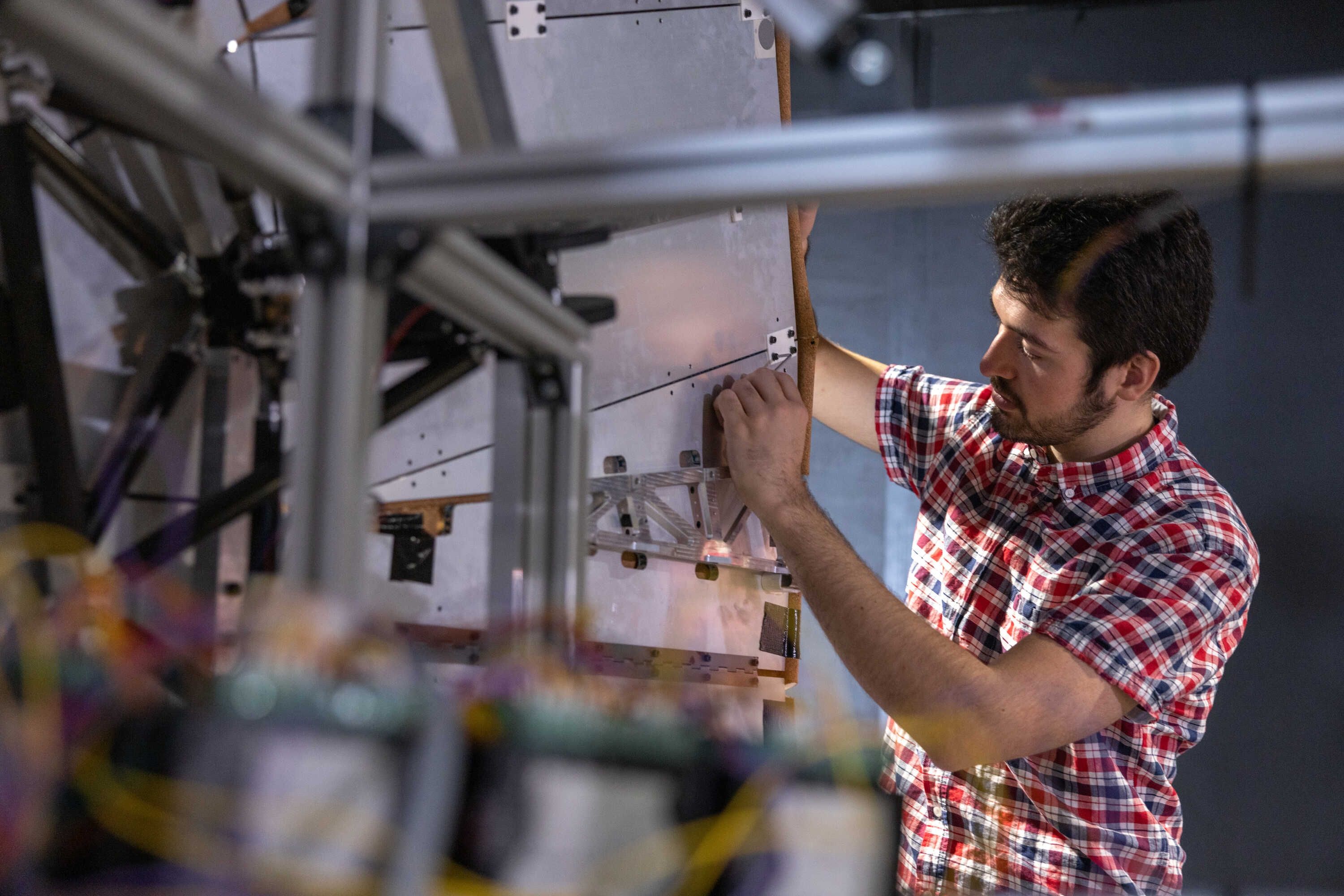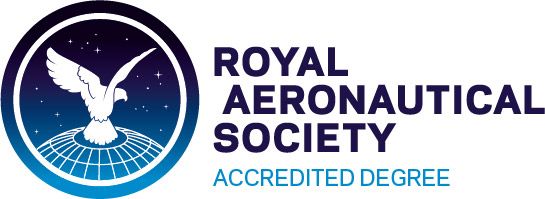
Advanced Aeronautical Engineering
Work with the latest industry-standard software in a world-leading research department.
Undertake multidisciplinary training in aircraft technologies
Learn the fundamental disciplines needed to develop new technologies and greener aircraft
Work with leading academics in a world-leading research department
Course key facts
Qualification
MSc
Duration
1 year
Start date
September 2025
Study mode
Full-time
-
Fees
£18,500 Home
£42,900 Overseas
Delivered by
Location
-
South Kensington
-
Minimum entry standard
2:1, preferably First, in Aerospace or Mechanical Engineering with some experience of fluid and structural dynamics.
Course overview
Learn the fundamental disciplines needed to develop new technologies and greener aircraft on this one year, full-time course, which offers broad multidisciplinary training in aircraft technologies designed to reduce environmental impact and life-cycle costs.
Discover how the aviation industry is meeting the challenge of maintaining its economic growth while improving its environmental credentials as you work with the latest industry-standard software in world-leading research facilities.
Examine the 'Green Aviation' initiative in detail on a series of core and optional modules and complete an extensive individual research project offering an original assessment on a chosen aspect of aeronautical engineering.
Structure
This page is updated regularly to reflect the latest version of the curriculum. However, this information is subject to change.
Find out more about potential course changes.
Please note: it may not always be possible to take specific combinations of modules due to timetabling conflicts. For confirmation, please check with the relevant department.
Prior to starting your studies, you’ll be provided with access to optional pre-sessional courses exploring key topics covered on this course.
Pre-study
Refresh your knowledge on the basics of stress analysis and learn about common stress analysis techniques.
Learn about the scientific programming tools and languages required to perform numerical computation.
Revise essential mathematics.
Gain an insight into state-space methods for the analysis and design of control systems.
Understand the basic effects of compressibility on fluid flow and evaluate the behaviour of compressible flows.
Refresh your knowledge of flight mechanics and how aircraft performance can be predicted on key characteristics.
Refresher course on the basics of fluid mechanics.
Professional accreditation
This course is professionally accredited by The Royal Aeronautical Society. The Society is licensed by the Engineering Council to register candidates as Chartered Engineers (CEng), Incorporated Engineers (IEng) and Engineering Technicians (EngTech).
Our accreditation agreement with the Royal Aeronautical Society is renewed every five years. The current accreditation agreement is due to be renewed for students starting their studies in the 2024-25 academic year. The Department expects to be accredited into the future.
Teaching and assessment
Balance of teaching and learning
Key
- Lectures and tutorials
- Independent study
- Research
- 10% Lectures and tutorials
- 40% Independent study
- 50% Research
Teaching and learning methods
-
Lectures
-
Tutorials
-
Group work
-
Virtual learning environment
-
Self-study
-
Lecture recordings
-
Research project
Balance of assessment
Key
- Coursework
- Exams
- Oral assessment
- 60% Coursework
- 30% Exams
- 10% Oral assessment
Assessment methods
-
Coursework
-
Examinations
-
Tutorials
-
Oral assessment
-
Progress reports
Entry requirements
We consider all applicants on an individual basis, welcoming students from all over the world.
2:1, preferably First, in Aerospace or Mechanical Engineering with some experience of fluid and structural dynamics.
How to apply
Apply online
You can submit one application form per year of entry. You can choose up to two courses.
Find out more about how to apply for a Master's course, including references and personal statements.
There is no application fee for MRes courses, Postgraduate Certificates, Postgraduate Diplomas, or courses such as PhDs and EngDs.
If you are applying for a taught Master’s course, you will need to pay an application fee before submitting your application.
The fee applies per application and not per course.
- £80 for all taught Master's applications, excluding those to the Imperial College Business School.
- £100 for all MSc applications to the Imperial College Business School.
- £150 for all MBA applications to the Imperial College Business School.
If you are facing financial hardship and are unable to pay the application fee, we encourage you to apply for our application fee waiver.
Unless you are from an exempt nationality, you will need an ATAS certificate to obtain your visa and study this course.
Nationals from the following countries are exempt: Switzerland, Australia, Canada, Japan, New Zealand, Singapore, South Korea, USA and EEA members.
Use this information when applying for an ATAS certificate to study this course:
- CAH code: CAH10-01-04
- Descriptor: Aeronautical and aerospace engineering
- Supervisor name: Professor Spencer Sherwin
Get guidance and support for obtaining an ATAS certificate.
Fees and funding
Home fee
2025 entry
£18,500
You should expect and budget for your fees to increase each year.
Your fee is based on the year you enter the university, not your year of study. This means that if you repeat a year or resume your studies after an interruption, your fees will only increase by the amount linked to inflation.
Find out more about our tuition fees payment terms, including how inflationary increases are applied to your tuition fees in subsequent years of study.
Whether you pay the Home or Overseas fee depends on your fee status. This is assessed based on UK Government legislation and includes things like where you live and your nationality or residency status. Find out how we assess your fee status.
If you're a UK national, or EU national with settled or pre-settled status under the EU Settlement Scheme, you may be able to apply for a Postgraduate Master’s Loan from the UK government, if you meet certain criteria.
For courses starting on or after 1 August 2024, the maximum amount is £12,471.
The loan is not means-tested and you can choose whether to put it towards your tuition fees or living costs.
How will studying at Imperial help my career?
Gain transferable skills relevant to a career in aeronautical engineering or similar fields.
With specialised knowledge, you'll be highly sought after in a range of sectors.
F1 racing, civil aviation, and further aeronautics research are just some of your options.
Further links
Contact the department
- Telephone: +44(0) 20 7594 5066
- Email: aero.msc-admissions@imperial.ac.uk
Course Director: Dr Qianqian Li
Visit the Department of Aeronautics website.
.jpg)
Request info
Find out more about studying at Imperial. Receive updates about life in our community, including event invites and download our latest Study guide.

Events, tasters and talks
Meet us and find out more about studying at Imperial.

Terms and conditions
There are some important pieces of information you should be aware of when applying to Imperial. These include key information about your tuition fees, funding, visas, accommodation and more.
You can find further information about your course, including degree classifications, regulations, progression and awards in the programme specification for your course.
Programme specifications